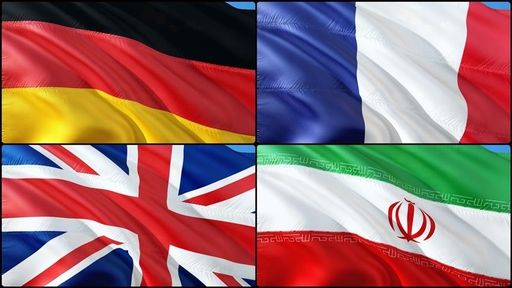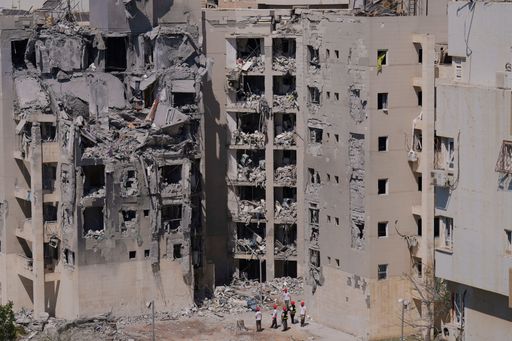As the clock ticks down towards a September 28 deadline, Iran is faced with its age-old dilemma: get around to Western demands on its nuclear programme or face renewed sanctions, which could deal a body blow to its already crippled economy.
The UK, France and Germany – three European nations collectively called E3 – announced last month that the mechanism known as ‘snapback sanctions’ will come into effect if Iran fails to cooperate with the International Atomic Energy Agency (IAEA) on its nuclear programme.
Iran has said all along that its nuclear programme is for peaceful, though there is deep suspicion about Tehran’s real motives.
Since the October 2023 Hamas blitz on Israeli military positions and settlements, Tehran has seen its sphere of influence greatly reduced in the region – with the fall of ally Bashar al Assad in Syria, and crippling Israeli strikes on Hezbollah in Lebanon and Houthis in Yemen.
Iran itself came under attack, with Israel and the US striking its nuclear facilities.
It seems an unexpected chain of events for a country, which hoped during the landmark 2015 nuclear deal (JCPOA) negotiations with the former Obama administration that Western sanctions would end once and for all at the end of 2025 – ten years after the deal’s signing.
According to UN Resolution 2231, unless the snapback mechanism is activated by any party by October 2025, Western sanctions on Iran will end once and for all.
But on August 28, E3 decided to trigger the snapback mechanism on the alleged ground that Iran has not complied with its JCPOA obligations by allowing IAEA inspectors to its nuclear facilities.
Tehran rushed to sign an agreement with the IAEA director general Rafael Grossi on September 9 to open the country to inspectors. But the move appears to have come too late for Iran as a UN Security Council resolution, which could have ensured a sanction relief, failed to pass on Friday.
Experts too feel that the time for diplomacy might be over.
Mohammad Eslami, an Iranian academic and professor of international relations at the University of Minho, says the snapback mechanism would “definitely be triggered” soon.
Fatima Karimkhan, a Tehran-based Iranian journalist, also sees no possibility that both sides can reach a deal at this point.
“...(w)hile some still say that there is a diplomacy window for more negotiations. I don't think that would be possible,” Karimkhan tells TRT World.
What will be Iran’s response, however, remains a million-dollar question.
Will Iran accept Western conditions?
Eslami, for one, feels that Tehran’s anti-Western leadership does not have any reason to fulfill the West’s demands, which fall outside “Iran’s red lines” – from zero enrichment to reduction of missile production and limits on missile ranges.
Despite all talks of a peaceful nuclear programme, Iranian officials have not been shy about publicly talking about uranium enrichment, a critical part of building an atomic bomb.
Karimkhan also draws attention to the fact that if Tehran were willing to accept Western conditions, laid out in the recent E3-Iran Istanbul talks, it could have done so in the last three months. “If they did not accept that when they had time, they will not accept that now either,” Karimkhan tells TRT World.

She sees no rationale for the Iranian political mindset to compromise with the West “at this point” on E3 conditions, which largely echo the Trump administration's positions, as Tehran has already faced all the challenges that the country tried to avoid with the JCPOA deal.
Iran has endured sanctions just three years after the JCPOA, she says, referring to the Trump administration's abrupt withdrawal from the nuclear deal in 2018, leaving the agreement in limbo. Since then, the US has reimposed several sanctions on Tehran.
The nuclear standoff has not only remained unresolved but also gotten worse as both Israel and the US targeted Iran’s nuclear facilities, leading to the deaths of over 1,000 people.
From Iran’s point of view, being involved with the international community and remaining committed to the deal will not save Tehran from anything and will not help Iran improve its economy and stability, says Karimkhan.
“Iran is a large country with more than 10 neighbours and strategic connections with other powers worldwide. From Iran’s point of view, the country can keep up with the Trump administration for the next 2-3 years and probably after that, Iran would go for another negotiation,” she adds.
Eslami also points out that the West has already “sanctioned almost everything” on Iran. “Just as Resolution 2231 did not lead to an improvement in Iran’s economy, its suspension will also not destroy Iran’s market.”
Aimen Jamil, an Islamabad-based expert on Iranian affairs, predicts growing Iranian defiance with accelerated enrichment and reduced IAEA access, paired with a stronger pivot toward Russia and China to soften the economic hit if Western sanctions are fully restored.
“At the same time, Tehran will rely on its proxy network to raise regional costs, signalling resilience and retaliation rather than collapse,” Jamil tells TRT World, referring to the so-called ‘Axis of Resistance’ Tehran has used to wage indirect wars on its adversaries.
What if Israel strikes again?
Experts predict an upcoming conflict between Israel and Iran, the two archenemies of the Middle East.
While it will not happen in a short time, Israel would like to have another round of face-off with Iran and returning the UN sanctions will help them to justify that, says Karimkhan. But “Iran is not defenseless,” she adds.
Iran still has the capacity to target Israel, and this is something Israelis might not afford, according to Karimkhan.
While the international community continues to close its eyes to Israeli aggression across the Middle East, Iran is regaining its strength, she says. If Israel attacks, Iran “will seek retaliation”, she says.
There is a clear medium-term risk of renewed Iran–Israel escalation after September 28, but it is unlikely to take the form of an immediate full-scale war, says Jamil, predicting that tensions are more likely to surface through calibrated actions such as proxy attacks on regional shipping, missile tests that challenge sanctions, or cyber operations targeting critical infrastructure.
“At the same time, both sides remain cautious after their June confrontation, and factors such as conflict fatigue, international mediation, and deterrence dynamics still act as restraints on a direct clash,” she says.

Escalation is “highly likely”, and this time it will probably be “more brutal for both sides”, according to Eslami. “Iran would be the one delivering surprises, rather than being surprised.”
Experts, however, feel that the JCPOA might have reached a dead end.
Omer Ozgul, an expert on Iranian security policies and a former Turkish army officer, does not see many chances for the survival of the JCPOA in the present circumstances.
A former top Iranian diplomat with extensive experience in nuclear negotiations also describes the situation as the “last nail in the coffin of the JCPOA”.
“It’s a crystal clear indication to the whole world, particularly developing countries, that the EU is not a trustworthy partner but a weak bloc under the US supervision. They can not deliver anything they promised,” he tells TRT World, speaking on the condition of anonymity. E3 largely echoes the EU’s voice. After the US withdrawal, the EU was instrumental in keeping the JCPOA negotiations alive.




















